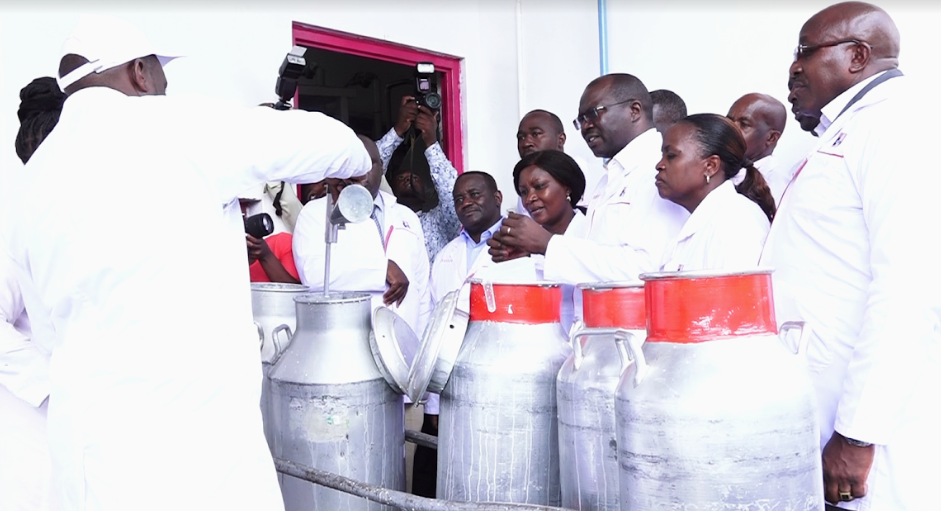The government has embarked on phase three of the modernization and upgrading of New Kenya Cooperative Creameries (KCC) plants across the country.
Cooperatives and MSMEs Cabinet Secretary (CS) Simon Chelugui said those plants earmarked for the modernization programme this year include Runyenjes in Embu, Narok, Mogotio, and Kabianga.
Included in the programme, according to CS Chelugui, is the improvement of machinery in Miritini in Mombasa to convert powdered milk into liquid for the export market.
Speaking while on an inspection tour of the New KCC Runyenjes Milk Cooling Plant in Embu, the CS said Sh. 700 million had been set aside to transform the plant into a processing factory.
“If we want to improve milk farming in Embu, we must expand this project and ask our farmers to reciprocate with an increase in supply of raw milk,” he said.
He said that in phase one, they were able to expand and upgrade the Kiganjo, Nyambene, and Nyahururu plants.
He said all these programmes involving the installation of state-of-the-art equipment for value addition and increased processing capacity are geared towards increased earnings for farmers.
To address the outcry from farmers over poor and delayed payments, CS Chelugui said talks had commenced with all 35 processors led by the President with a view to regularising payments.
“We will soon make a national announcement that will compel all milk processors to pay farmers on an appointed date, whether they have received money or not,” the CS said.
On the price, he said, they will seek ways of addressing the cost of production, which was a major factor affecting returns to the farmers.
He said that because most of the farmers were subsistence farmers and unable to produce adequate fodder, the government will explore ways of utilising parts of government-owned lands for that purpose.
This, he said, will be achieved through leasing parts of these lands, such as Kengen, Tarda, ADC, prisons, and so on, to milk processors to cultivate animal fodder and sell it to the government at a reduced cost.
“The farmer will eventually be able to secure fodder from the government at a reduced price, which will reduce the cost of producing milk,” he said.
Embu Governor Cecily Mbarire and a host of area leaders accompanying the CS welcomed the move to upgrade the milk cooling plant that was established 20 years ago.
She said once complete, the factory will come in handy in ensuring the success of her proposed programme of supplying free milk to all 17,000 ECDE learners across the county at a reduced cost.
She reported that the annual production of milk in the county stood at 77.3 million litres, with an average return of Sh3.9 billion.
The governor said average milk production for a cow per day was eight kilos, which could be pushed to approximately 15 kilos with proper animal husbandry and extension services.
By Samuel Waititu




